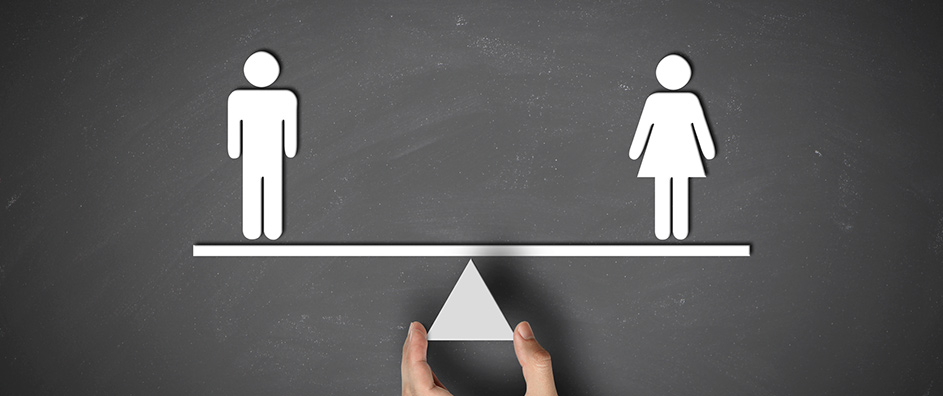Equality is often heralded as a fundamental pillar in the quest for social justice, yet its role in addressing domestic violence warrants deeper scrutiny. The intricate relationship between equality and the eradication of domestic violence calls for an exploration of the Bahá’í teachings, which present a holistic, justice-centered approach. Through an examination of these teachings, one can discern not only the principles that underpin gender equality but also how these principles serve as a formidable bulwark against the scourge of domestic violence.
Several dimensions underlie the connection between equality and the cessation of domestic violence. At its core, the Bahá’í perspective posits that the true essence of human dignity is rooted in equality—between genders, races, and social classes. This perspective is nurtured by the belief that all individuals are created equally in the sight of God. The propagation of this belief fosters an environment where mutual respect and understanding flourish, thus mitigating the potential for domestic violence.
The societal construct of power dynamics often exacerbates environments ripe for domestic violence. In traditional settings, entrenched notions of male superiority can easily precipitate violence against women. The Bahá’í teachings challenge these inequities by espousing the idea that both men and women possess equal capacities and responsibilities. Such teachings motivate a transformation in societal values that not only reconstitutes gender roles but also delineates a path toward peaceful coexistence—an essential prerequisite for mitigating domestic violence.
Furthermore, the Bahá’í Faith emphasizes the importance of education as a catalyst for change. The lack of education, particularly among women, can perpetuate cycles of violence. Illiteracy and ignorance often lead to dependency on oppressive partners, trapping individuals in detrimental relationships. Consequently, Bahá’í teachings advocate for universal education, illuminating the path toward not only individual empowerment but also community resilience. Through education, both men and women acquire the tools necessary for recognizing and challenging abusive behaviors, ultimately dismantling the cycles of violence.
In addition to education, the Bahá’í approach prioritizes justice as an integral component of creating equitable societies. Justice, within this framework, is not merely retributive but restorative. It seeks to heal the wounds inflicted by domestic violence, offering pathways for both victims and perpetrators to find reconciliation and restoration. The emphasis on justice necessitates a departure from punitive measures that often fail to address the root causes of violence. Instead, Bahá’í teachings promote restorative justice practices that encourage dialogue, understanding, and healing—a process that is crucial in building a society where domestic violence is not tolerated.
The practical enactment of these principles can manifest in community-building initiatives that foster dialogue about domestic violence. Bahá’í communities are encouraged to hold workshops and discussions that openly address the issue, thereby dismantling the taboo that often surrounds domestic violence. By fostering an atmosphere of openness and acceptance, these initiatives promote a culture where individuals feel empowered to speak out against violence and seek help. This collective effort not only supports victims but also cultivates a communal ethos that repudiates violent behavior.
Moreover, the Bahá’í teachings highlight the significance of nurturing strong families as a bulwark against domestic violence. Strong families are built on principles of love, respect, and equality, which create safe environments for all members. Parenting practices that reinforce these values contribute significantly to the emotional and psychological well-being of children, who may otherwise perpetuate cycles of violence. Therefore, the conceptualization of family within the Bahá’í framework entails a commitment to equity and justice, ensuring that future generations inherit a legacy of respect and non-violence.
The connection between economic stability and domestic violence cannot be overlooked. Bahá’í teachings emphasize the economic empowerment of all individuals, particularly women, who historically have been marginalized in economic spheres. Economic independence can serve as a potent antidote to domestic violence by affording individuals the means to escape abusive situations. Communities that prioritize economic opportunities for all, paired with gender-sensitive policies, create environments less conducive to violence. This approach underscores the necessity of addressing economic disparities as part of a comprehensive strategy to combat domestic violence.
In contemplating the practical implementation of these teachings, it is imperative to consider the role of institutions in safeguarding equality and justice. Lawmakers, community leaders, and social workers must engage with Bahá’í principles to develop policies and initiatives that not only respond to domestic violence cases but also proactively work towards prevention. Training programs that incorporate these teachings can equip individuals in positions of influence with the knowledge necessary to instigate systemic change.
In juxtaposing the theoretical frameworks of Bahá’í teachings with the harsh realities of domestic violence, it becomes evident that equality serves as a linchpin in the quest for justice. By elevating the discourse around gender dynamics, education, justice, community engagement, family integrity, and economic empowerment, Bahá’í teachings provide a multifaceted approach to this pervasive issue. The insights gleaned from these teachings illuminate pathways for healing and transformation—an endeavor that is as daunting as it is necessary.
Ultimately, the eradication of domestic violence necessitates not only a commitment to equality but also a persistent engagement with the principles of justice and community building. Through the integration of these values into the fabric of society, the ideal of a harmonious, violence-free world can inch closer to realization. The teachings of the Bahá’í Faith stand as a powerful reminder of the potential inherent in valuing equality, calling upon individuals and communities alike to rise against the tides of injustice and violence.
